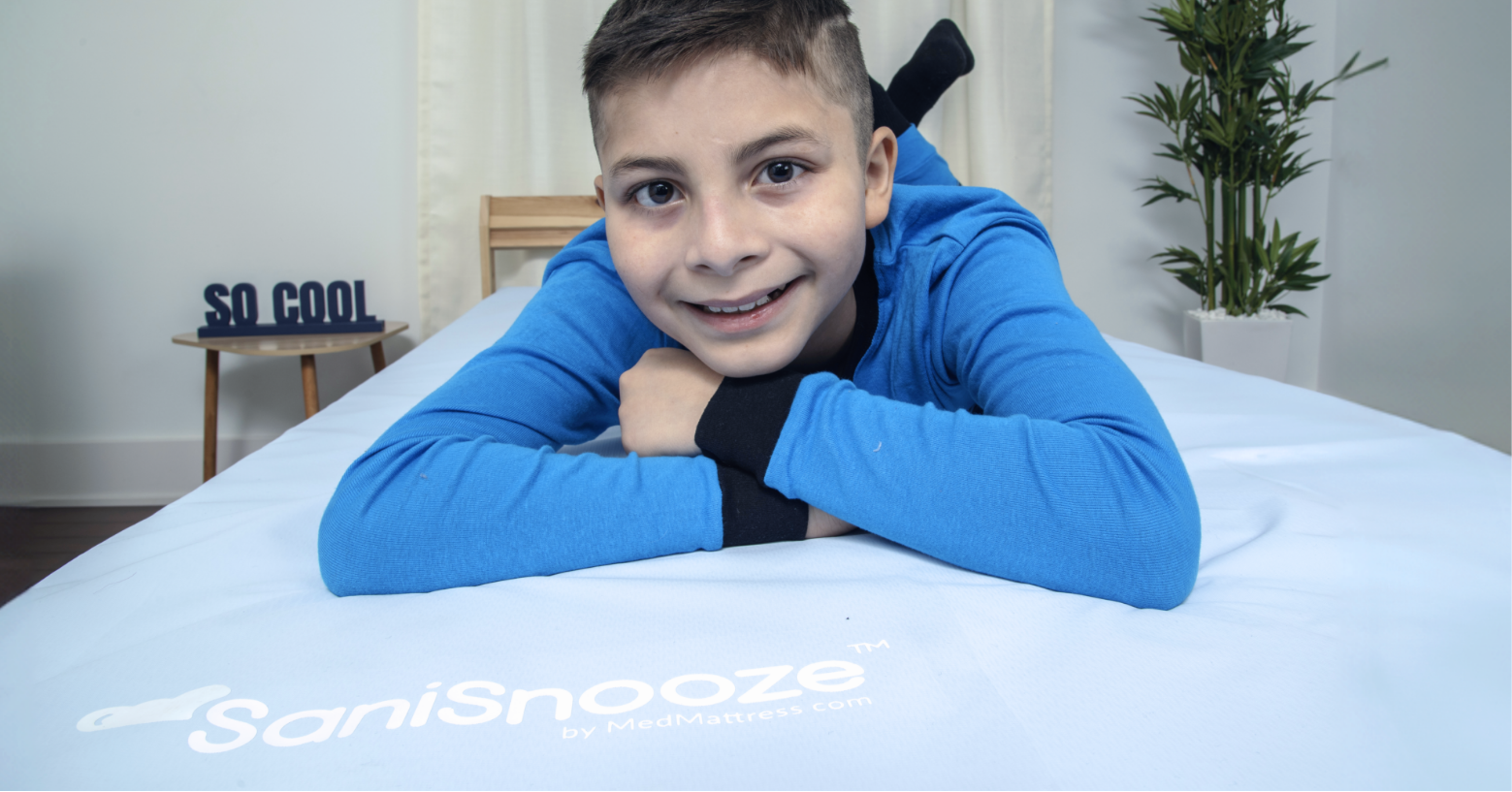

Finding Solutions for Child & Teen Bedwetting
Bedwetting, medically known as nocturnal enuresis, is a common issue that affects many children and teenagers. Although it can be frustrating and sometimes embarrassing for the child, it’s important to understand that bedwetting is usually not a sign of any deeper medical or emotional problem. Many children grow out of it naturally, but there are practical steps you can take to manage and ultimately resolve the situation.
Common Causes of Child and Teen Bedwetting
Understanding the reasons behind bedwetting can make it easier to address. The causes of bedwetting can range from developmental factors to lifestyle habits:
Bladder Maturity: Often, younger children have underdeveloped bladders, meaning they aren’t yet big enough to hold urine for an entire night. The brain and bladder need time to sync up so that the child can wake up when their bladder is full.
Deep Sleep Patterns: Some kids are deep sleepers and may not wake up when they need to urinate. Even though their body sends signals, the brain may not receive them during deep sleep.
Genetic Factors: Bedwetting tends to run in families. If either parent struggled with bedwetting as a child, there is a higher chance that their children will experience it as well.
Hormonal Imbalances: A child may not be producing enough antidiuretic hormone (ADH), which helps the body slow urine production at night.
Stress and Anxiety: Emotional factors, such as stress from school or changes in family life, can also contribute to bedwetting in children and teens.
Medical Conditions: In rare cases, bedwetting can be linked to medical issues like urinary tract infections, constipation, diabetes, or sleep apnea. If bedwetting suddenly begins after a child has been dry for a long period, or if you suspect an underlying medical issue, consult a pediatrician.
Practical Bedwetting Solutions
Fortunately, there are a variety of strategies that can help children and teenagers stop bedwetting over time. These bedwetting solutions and methods address both physical and emotional aspects of the problem.
Create a Nighttime Routine: Establishing a consistent bedtime routine can help train the body to recognize when it’s time to go to sleep and when it’s time to wake up to use the bathroom.
- Limit Fluid Intake: Encourage your child to drink more fluids earlier in the day and limit intake to an hour or two before bed.
- Encourage Bathroom Trips Before Bed: Ensure your child uses the bathroom right before going to sleep to empty the bladder.
- Bladder Training: You can try bladder training exercises, such as asking your child to delay urination slightly during the day, which can help strengthen bladder control.
Use a Bedwetting Alarm: Bedwetting alarms are devices that detect moisture in a child’s underwear or bedding and sound an alert, waking the child when bedwetting occurs. Over time, the alarm conditions the child to recognize the need to urinate and wake up before bedwetting happens. Research shows that bedwetting alarms can be highly effective when used consistently, though they require commitment from both the child and parent to be successful.
Positive Reinforcement and Rewards: Encouraging your child through positive reinforcement can help build their confidence. Rather than punishing or shaming them for accidents, focus on celebrating dry nights. You can use a reward system, such as a sticker chart or small prizes, to motivate them to stay dry.
Medication (If Necessary): In some cases, medications may be prescribed by a doctor. Desmopressin (DDAVP) is one such medication that can reduce urine production at night. However, it is generally only used for short-term management and may not address the root cause of bedwetting. Always consult a healthcare professional before considering medication.
Address Emotional Factors: For children and teens, bedwetting can often be linked to feelings of stress, insecurity, or anxiety. If your child is experiencing significant life changes (such as starting a new school, moving, or dealing with family issues), it’s important to talk to them about how they are feeling. In some cases, a counselor or therapist can help a child manage stress and anxiety, which may indirectly help reduce bedwetting.
Protect Bedding and Maintain Privacy: Until bedwetting is resolved, consider using waterproof mattresses, mattress covers, and absorbent bed pads to protect the bedding. Ensure your child has clean, dry pajamas and bedding available so they can change quickly and discreetly. Minimizing embarrassment can help them feel more comfortable.
When to Seek Medical Help
Bedwetting is often something children outgrow, but there are times when it’s important to seek medical advice:
- If bedwetting persists beyond age 7 without improvement.
- If your child was dry for several months and then starts wetting the bed again.
- If your child experiences pain during urination, daytime accidents, or excessive thirst.
A healthcare professional can rule out any medical causes and offer guidance on the next steps.
Final Thoughts
Bedwetting can be a challenging experience for both the child and parents, but patience and understanding are key. By fostering a supportive environment and using the appropriate tools, children and teens can overcome this phase with confidence. Whether through simple lifestyle changes, the use of bedwetting alarms, or medical intervention, a solution is within reach. Keep communication open, provide reassurance, and celebrate progress—no matter how small.
**The information on this site is not intended or implied to be a substitute for professional medical advice. If you are having a severe and sudden change in physical or mental health, please call 911, contact a local emergency facility or consult with your doctor. Always seek the advice of your physician or other qualified healthcare provider, and never disregard the advice given because of information you have received from our website. SaniSnooze is a division of DiaMedical USA.**
Our mission at SaniSnooze™ is to get you back to sleep faster. SaniSnooze™ will keep your mattress core clean and dry all night long.



